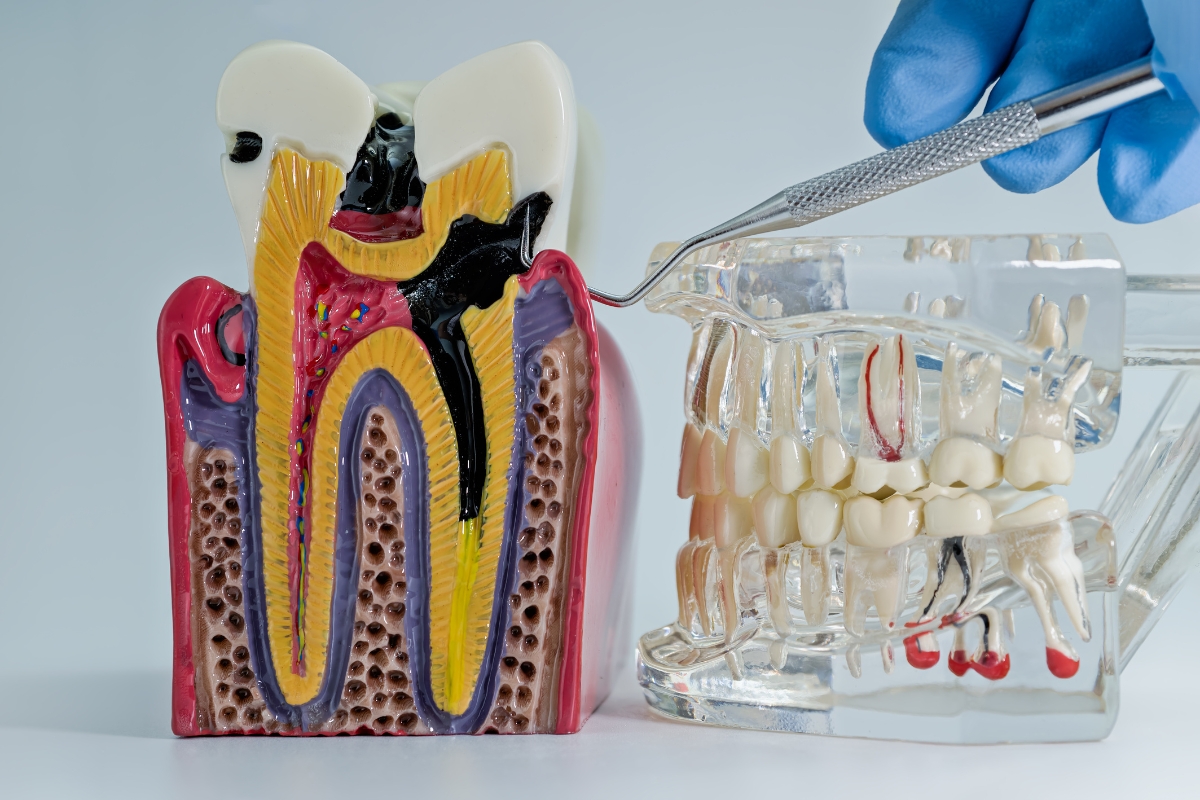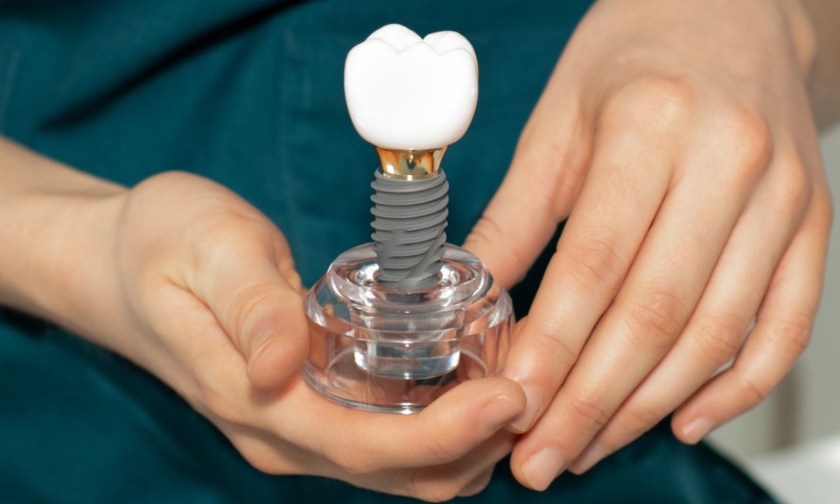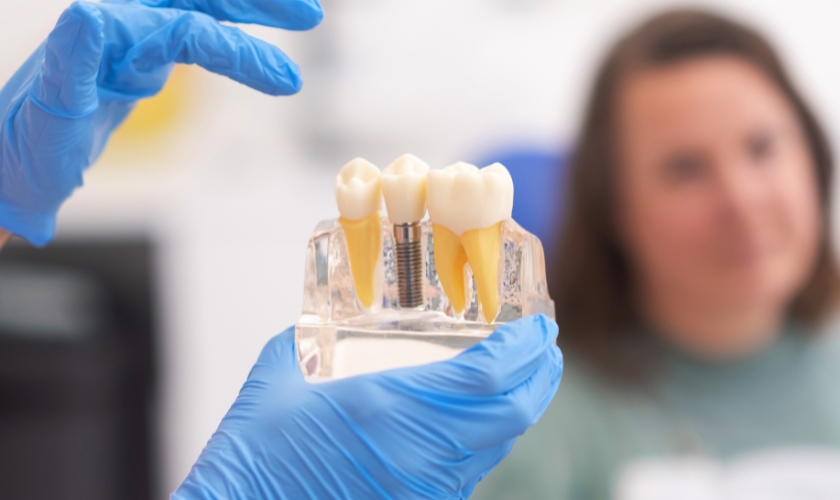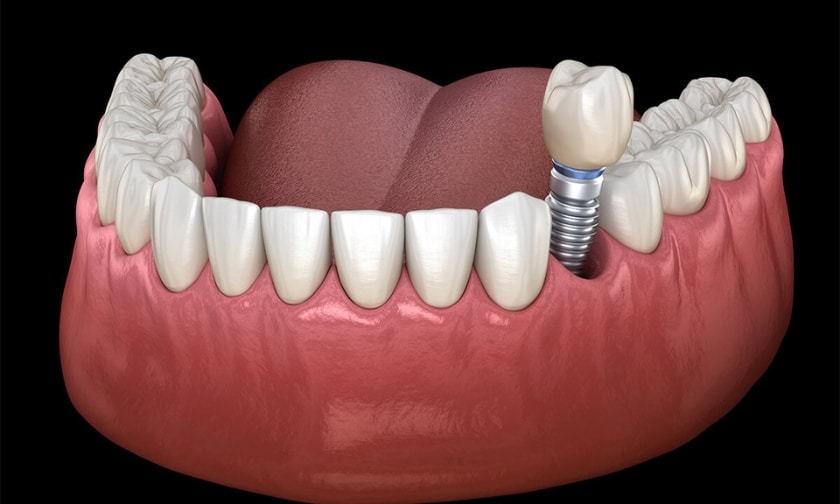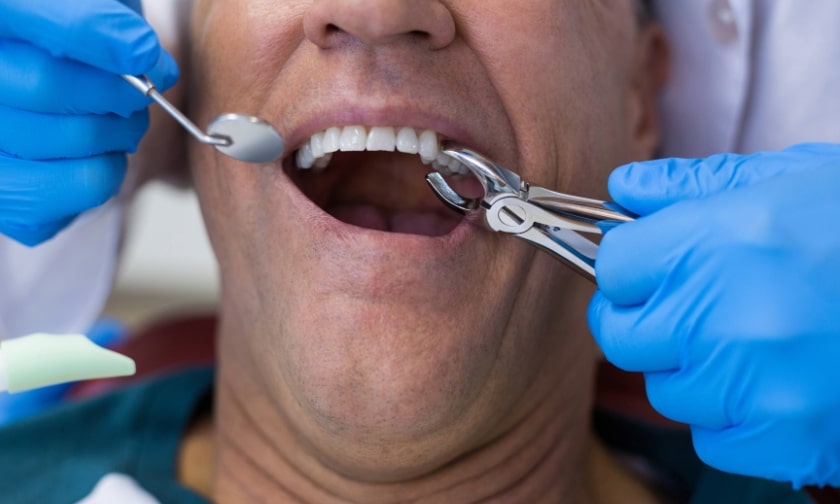Dental implants have revolutionized replacing lost teeth, offering a durable and natural-looking solution. These implants act as artificial tooth roots that fuse with the jawbone, providing a solid foundation for replacement teeth. Unlike dentures, these metal posts look, feel, and function like natural teeth.
Proper care is essential to ensure their longevity and success. Dental implants can last for decades, giving patients the confidence to smile, eat, and speak comfortably when cared for properly. Good oral hygiene, regular dental visits, and a healthy lifestyle can prevent complications and help maintain the implants' functionality for many years.
What Are Dental Implants?
Dental implants are titanium posts or frames surgically placed into the jawbone. They replace missing or damaged tooth roots and support artificial teeth like crowns, bridges, or dentures.
The process starts with a consultation to assess the patient’s oral health and suitability. The dentist places the implant into the jawbone; over time, the bone fuses with the implant through osseointegration.
Once the implant is securely in place, an artificial tooth (crown) is attached. This process can take several months, as healing and integration are crucial. Post-surgery care is vital during this period to avoid complications.
Proper care after the procedure helps promote healing, reduce the risk of infection, and ensure the implant's stability. Following the dentist’s instructions closely is essential for the best outcome.
Why Proper Care Matters?
Taking care of these metal posts is crucial to avoid complications and ensure their long-term success. Neglecting proper care can lead to infection, implant failure, or gum disease.
Without regular maintenance, plaque and bacteria can accumulate around the implant, causing inflammation and possible infection in the surrounding tissue. This condition, known as peri-implantitis, can lead to bone loss and, ultimately, the implant's failure.
On the other hand, proper care helps extend the lifespan of these metal posts and maintain overall oral health. Brushing and flossing regularly, along with professional cleanings, remove plaque and tartar buildup, keeping the area around the implant healthy.
Additionally, avoiding bad habits like smoking or grinding your teeth reduces the risk of complications. By committing to proper dental hygiene and regular visits to the dentist, you can ensure the long-term success of your dental implants.
The Dos of Caring for Dental Implants
Do Practice Good Oral Hygiene: Regular brushing and flossing are essential to keep dental implants clean and free from harmful bacteria. Use a soft-bristled toothbrush and non-abrasive toothpaste to avoid damaging the implant or gum tissue.
Brushing at least twice daily and flossing once daily helps prevent plaque buildup and gum disease around the implant.
Do Visit Your Dentist Regularly: Even though these metal posts are sturdy, they require regular professional care. Your dentist will check the implants for signs of wear, infection, or damage. They will also professionally clean the implants to remove any tartar buildup.
Regular visits ensure any potential issues are addressed early, helping to prevent serious problems down the line.
Do Use a Soft-Bristled Toothbrush: A soft-bristled toothbrush is gentle on your implants and gums. Hard or medium-bristled brushes can irritate and wear down the implant surface, increasing the risk of complications. Soft brushes are also effective at removing plaque without causing harm.
Do Maintain a Healthy Diet: A balanced diet rich in vitamins and minerals supports oral health. Foods like fruits, vegetables, and dairy products provide essential nutrients for strong teeth and healthy gums.
Avoid too many sugary foods and sticky snacks, as they can contribute to plaque buildup and increase the risk of infection around the implant.
Do Wear a Night Guard If Necessary: If you grind your teeth at night, consider wearing a night guard. Teeth grinding, or bruxism, can put unnecessary pressure on your dental implants and cause damage. A custom night guard can protect your implants and help ensure their longevity.
Do Stay Hydrated: Drinking water helps keep your gums hydrated and supports healing. A dry mouth can increase the risk of plaque buildup and gum disease, so staying hydrated is crucial for maintaining a healthy mouth and successful implants.
The Don’ts of Caring for Dental Implants
Don’t Smoke or Use Tobacco: Smoking slows down the healing process and increases the risk of implant failure. Tobacco products also promote gum disease and peri-implantitis, which can damage the tissues surrounding the implant. To ensure the success of your implant, it’s best to quit smoking or using tobacco products entirely.
Don’t Use Your Implants to Bite Hard Objects: Avoid using your implants to chew hard objects like ice, pens, or fingernails. Doing so can cause cracks or damage to the implant or crown. These metal posts are strong, but they are not indestructible. Protect your investment by using your teeth only for their intended purpose—chewing food.
Don’t Skip Dental Appointments: Regular dental check-ups are essential for monitoring the health of your dental implants. Skipping appointments could result in missed problems that may worsen over time. Professional cleanings remove tartar and plaque buildup that brushing alone can’t eliminate, ensuring the implant's and surrounding gums' health.
Don’t Ignore Symptoms: If you experience pain, swelling, or discomfort around your implant, seek help from your dentist immediately. Ignoring these signs can lead to more severe issues, including infection or implant failure. Early intervention is key to preventing further damage and ensuring the implant’s success.
Don’t Use Abrasive Toothpaste: Harsh or abrasive toothpaste can scratch the surface of these metal posts, leading to wear and tear. Opt for a gentle, non-abrasive toothpaste to keep your implants clean without damaging them. Your dentist can recommend the best products for your oral care routine.
Additional Tips for Long-Lasting Implants
In addition to following the basic dos and don’ts, adopting some lifestyle changes can further enhance the longevity of your dental implants. Reducing stress is one such change, as stress can lead to teeth grinding, which is harmful to implants. Practice relaxation techniques like meditation or yoga to manage stress effectively.
Avoid using your teeth to open bottles, tear packages, or bite hard items. This can cause unnecessary stress on your implants. Always use proper tools to prevent damage. Taking these extra precautions ensures that this treatment remains in excellent condition for many years.
When to Seek Professional Help?
Knowing when to contact your dentist regarding dental implants is important. If you experience persistent pain, swelling, or unusual discomfort, scheduling an appointment is crucial. These could be signs of an infection or complications with the implant. Additionally, if your implant feels loose or shifts, seek immediate attention.
Your dentist will assess the situation and determine the appropriate course of treatment. In some cases, the implant may need to be adjusted or replaced. Prompt care helps address problems before they become more severe, ensuring the longevity of your implants.
Caring for your dental implants is essential for their long-term success. By following the dos and avoiding the don’ts, you can maintain your implants and keep your smile healthy.
Good oral hygiene, regular dental visits, and a healthy lifestyle will extend the lifespan of your dental implants, allowing you to enjoy the benefits for years to come. Stay proactive in your care routine and consult our dentists regularly to ensure your implants continue to serve you well.

